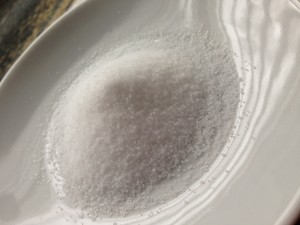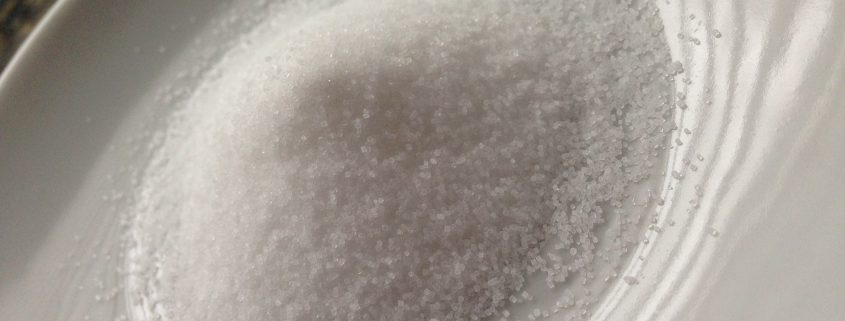Shake the Salt Habit for National Salt Awareness Week!
 Cardiovascular disease is the leading cause of death in the United States, with 1 in every 4 deaths resulting from the condition. Though genetic predisposition plays a role in developing cardiovascular disease, the reason why the incidence of this disease has reached exponential numbers is likely a result of poor lifestyle choices, including a high sodium intake. In an ongoing effort to reduce salt intake in populations around the world, the World Action on Salt and Health runs Salt Awareness Week every year and receives widespread support from countries around the globe. This year’s Salt Awareness Week begins today, March 16th and runs through Sunday, March 22nd.
Cardiovascular disease is the leading cause of death in the United States, with 1 in every 4 deaths resulting from the condition. Though genetic predisposition plays a role in developing cardiovascular disease, the reason why the incidence of this disease has reached exponential numbers is likely a result of poor lifestyle choices, including a high sodium intake. In an ongoing effort to reduce salt intake in populations around the world, the World Action on Salt and Health runs Salt Awareness Week every year and receives widespread support from countries around the globe. This year’s Salt Awareness Week begins today, March 16th and runs through Sunday, March 22nd.
Sodium is another name for salt, which is how it appears on food labels (1 teaspoon of salt contains 2,300 mg of sodium). Though it is an essential nutrient, most Americans eat way more sodium than is good for their heart, which is why the American Heart Association recommends that you eat no more than 1,500 mg of sodium per day. Most people consume 3,400 mg of sodium per day, which is more than twice the recommended amount! The reason why sodium is a nutrient of concern is because it increases blood pressure by holding onto excess fluid in the body, which makes the heart work harder. Many people are under the misconception that the biggest contributor to their sodium intake is the salt shaker, but 75% of the sodium people eat is hidden in processed foods and meals you eat at restaurants, making it harder for you to keep track of how much you are eating.
This year, Salt Awareness Week is focusing on the particular topic of Salt and Children to promote “escaping the fast food habit”. With busy schedules leaving little time for food preparation, parents often resort to fast food to feed their children. Evidence shows that dietary habits in childhood and adolescence carry over into adulthood, at which point they are even harder to break. Interestingly, liking salty foods is a learned taste, one that we are not born with. That is why it is important to help your children develop a palate for other tastes, other than salty foods when they are young.
Particular foods that are high in sodium that you should consider limiting in you and your children’s diets are canned soups, pre-made frozen meals, cold cuts and cured meats, pizza, and sandwiches or burgers from fast food restaurants. Expose your children to a variety of fresh fruits and vegetables, whole grains, dairy and lean meats that have not been processed. You will find that the less salt you eat in your diet, the more sensitive you will become to salty foods, and you will be less likely to desire them. Join the initiative and participate in Salt Awareness Week to shake the salt habit and instill healthy eating habits in your children today!


Leave a Reply
Want to join the discussion?Feel free to contribute!